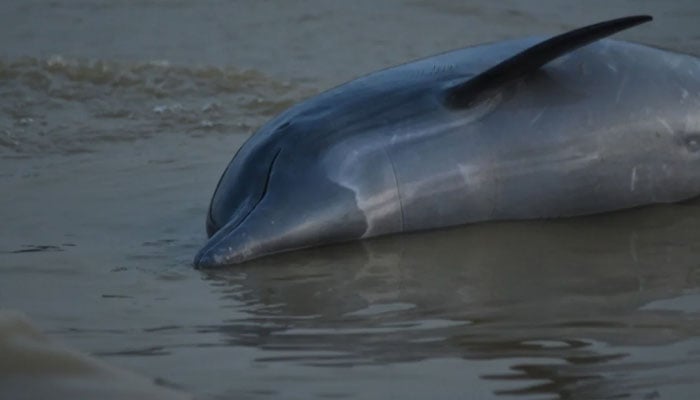Over 100 dead dolphins wash ashore in Amazon due to rising water tempratures
Experts say extreme mortality event may be linked to historic drought and soaring lake temperatures in Amazon
October 01, 2023

An alarming ecological crisis has unfolded in the Brazilian Amazon, with over a hundred dolphins found dead in Lake Tefé within the past week.
The Mamirauá Institute, a research institution funded by the Brazilian Ministry of Science, made this distressing discovery as the region grapples with an unprecedented drought and record-breaking water temperatures, exceeding 102 degrees Fahrenheit in some areas.
The sheer number of dolphin deaths is highly unusual and has raised concerns among experts. The institute suggests that the extreme mortality event may be linked to the historic drought and soaring lake temperatures in the Amazon.
Climate scientists have long expressed worry over the impact of human activities and extreme weather events on the Amazon region. The drought's severity and its correlation with rising temperatures further emphasise the environmental challenges facing this critical ecosystem.
The Amazon River, the world's largest waterway, is currently experiencing its dry season, leading to unusually high water temperatures. Several species of river fauna are also suffering due to these elevated temperatures.
In an effort to save surviving dolphins, researchers and activists are working to transfer them from lagoons and ponds in remote areas to the main body of the river, where the water is cooler.
However, this operation is fraught with challenges, particularly regarding potential toxins or viruses that could affect the dolphins when released into the wild.
André Coelho, a researcher at the Mamirauá Institute, highlighted the need for caution when relocating river dolphins, emphasising the importance of ensuring a safe environment for their release.
The severe drought in the Amazon has not only devastated its ecosystem but also had economic consequences. Reduced water levels have hindered transportation and fishing activities in 59 municipalities in Amazonas State, causing disruptions and economic strain on local communities.
Authorities anticipate that the drought will intensify in the coming weeks, potentially leading to more dolphin fatalities and exacerbating the environmental and economic challenges facing the region.









